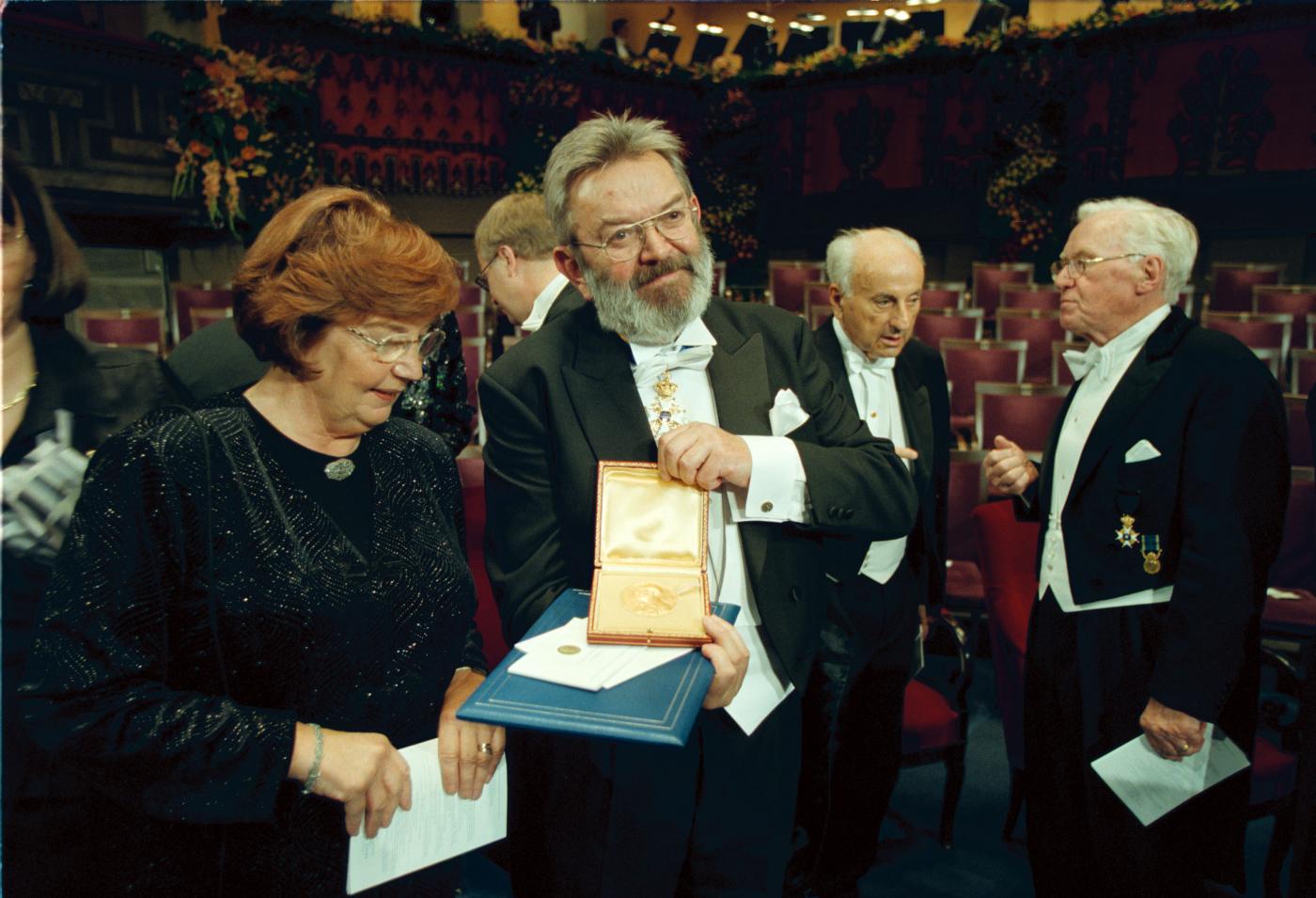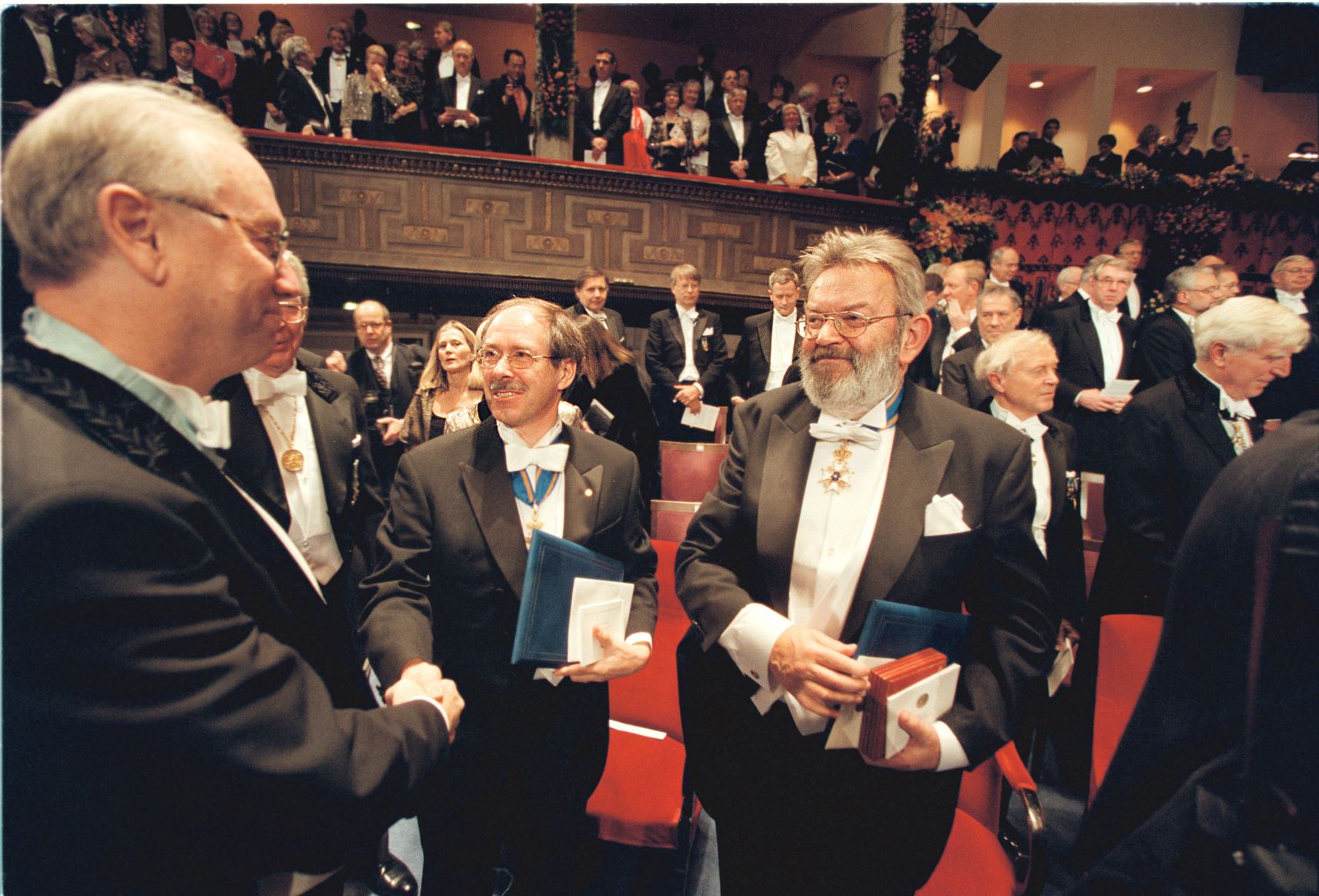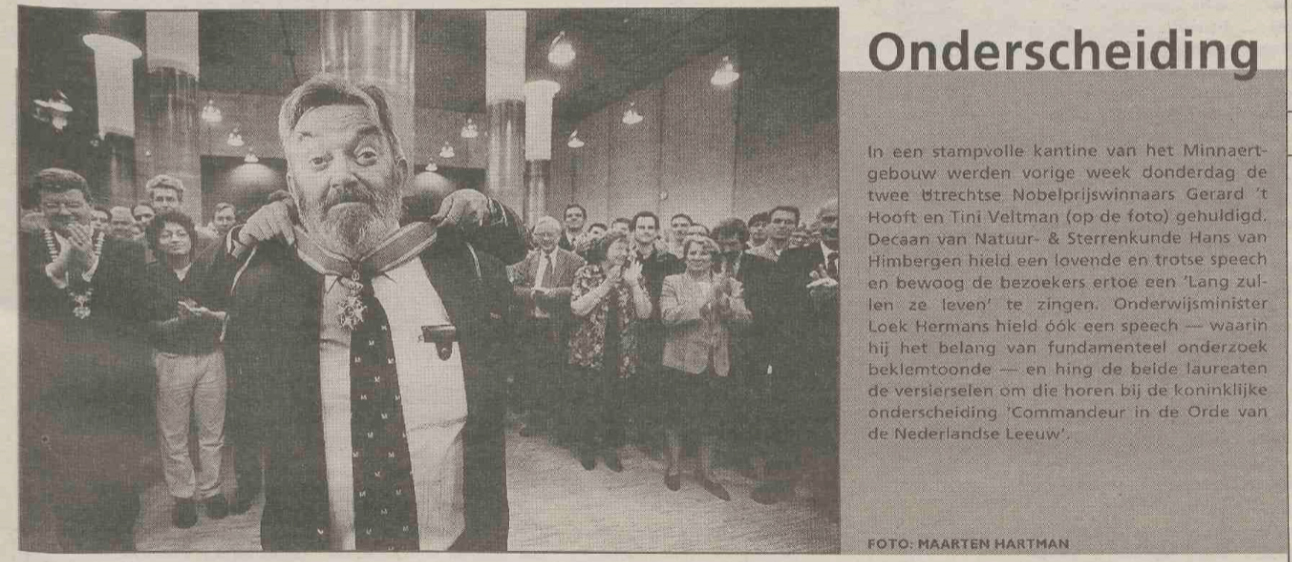Utrecht-based Nobel Prize winner Martinus Veltman passes away

A confident, outspoken scientist who was not afraid to go against the grain. That's the image that prevails in the tributes to Martinus (Tini) Veltman, who passed away last week.
The physicist had a striking personality. For example, he didn’t allow himself to be easily silenced when the chairman of a symposium felt that his time to speak was up. That was mentioned in several anecdotes recounted by colleagues in the Dutch newspapers NRC Handelsblad and Volkskrant.
Veltman, who died on January 4, was 89 years old. He was one of the five Dutch winners of the Nobel Prize still alive and one of the twelve Nobel Prize winners who studied or worked in Utrecht.
Uninspiring
Veltman came from a family of teachers in Brabant and studied mathematics and physics in 1948 in Utrecht. For a long time, he wasn’t a remarkable student, according to a short biography he wrote, which can be read on the Nobel Prize website.
According to him, university education was uninspiring, especially because many good teachers had left or been killed during the war. It was only when he discovered Einstein's theory of relativity a few years later that he really became interested in his studies.
In 1956, he graduated under the supervision of Léon van Hove, a new professor whom he appreciated. Van Hove offered him a PhD position after his military service. In 1961 Veltman followed his mentor to the European research centre (Cern) in Geneva, where Van Hove had become director. He would eventually complete his PhD in 1963.

The path to the Nobel Prize
In the years that followed, Veltman wrote a computer programme at Stanford and Geneva for calculating the interaction between the fundamental particles. His programme Schoonschip (a revealing name and annoyingly unpronounceable for non-Dutch speaking colleagues) would form the basis for the algebraic programmes that researchers now use worldwide.
In 1966, only three years after his doctorate, Veltman was appointed professor in Utrecht. By then he had already built up a great reputation and succeeded his mentor Van Hove.
This week, on the UU website, his former students and PhD candidates Bernard de Wit and Gerard 't Hooft – who both became UU professors later – elaborate about the no-nonsense professor who was open and accessible to students, and who also played a major role in the modernisation of education in Utrecht.
Through his own computer programme Schoonschip, Veltman headed towards the research path that later earned him the Nobel Prize. With his PhD candidate Gerard 't Hooft, he continued to work on a consistent description of the weak force - one of the four main forces alongside gravity, electromagnetic force, and strong force.
In 1971, the two managed to lay a mathematical foundation for the theory of the weak force and thus for the so-called standard model of particle physics. As a professor, 't Hooft was later the figurehead of physics in Utrecht for decades.

Cooling relationship
The relationship between the sensible 't Hooft, who came from a family of renowned physicists, and the flamboyant self-made Veltman would cool down in the following years. What exactly was going on between them remained unclear. In the ‘Ublad’ (Umagazine) the then Utrecht department chairman Bernard de Wit said in 1999: "I think you can best compare it with a marriage that is gradually deteriorating.”
When DUB contacted Gerard 't Hooft last year, on the occasion of the 20th anniversary of the Utrecht Nobel Prizes, he had to admit that their relationship “still was not great". He said Veltman was "difficult to approach".
Ironed out
In 1981, Veltman left UU and went to the University of Michigan in Ann Harbor, where he would stay until his return to the Netherlands following his retirement in 1996. In a contribution to the magazine ‘oud-Utrecht’ (Old Utrecht), former UU editor Armand Heijnen states that his departure considerably deteriorated his relationship with Utrecht.
His Utrecht institute wanted to keep the connection with the renowned physicist. However, the Executive Board did not accept Veltman's offer to be a guest professor in Utrecht for one month a year, possibly because he had expressed negative views about the University. For a long time, the departing professor remained displeased with the attitude of the Utrecht administrators.
Later, the then chairman of the University, Jan Veldhuis, ironed out the kinks keeping in mind a possible Utrecht Nobel Prize. So Tini Veltman showed up at a celebration in De Uithof after the Nobel Prize winners were announced in 1999. On that occasion, he and 't Hooft were also royally decorated.
After Veltman's retirement, Bernard de Wit still visited him regularly at home, as he explains in the article on the UU website."He used to think he knew everything himself, but in recent years he has taken the trouble to ask us for our opinions.”
Veltman passed away in the presence of his family. He leaves behind his wife, two sons, and a daughter.